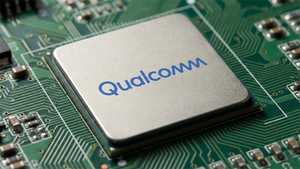BOISE, Idaho, July 16, 2024 (GLOBE NEWSWIRE) -- Micron Technology, Inc. (Nasdaq: MU), today announced it is now sampling its multiplexed rank dual inline memory module (MRDIMMs). The MRDIMMs will enable Micron customers to run increasingly demanding workloads and obtain maximum value out of their compute infrastructure. For applications requiring more than 128GB of memory per DIMM slot, Micron MRDIMMs outperform current TSV RDIMMs by enabling the highest bandwidth, largest capacity with the lowest latency and improved performance per watt to accelerate memory-intensive virtualized multi-tenant, HPC and AI data center workloads.1 The new memory offering is the first generation in the Micron MRDIMM family and will be compatible with Intel® Xeon® 6 processors.
“Micron’s latest innovative main memory solution, MRDIMM, delivers the much-needed bandwidth and capacity at lower latency to scale AI inference and HPC applications on next-generation server platforms,” said Praveen Vaidyanathan, vice president and general manager of Micron’s Compute Products Group. “MRDIMMs significantly lower the amount of energy used per task while offering the same reliability, availability and serviceability capabilities and interface as RDIMMs, thus providing customers a flexible solution that scales performance. Micron’s close industry collaborations ensure seamless integration into existing server infrastructures and smooth transitions to future compute platforms.”
By implementing DDR5 physical and electrical standards, MRDIMM technology delivers a memory advancement that allows scaling of both bandwidth and capacity per core to future-proof compute systems and meets the expanding demands of data center workloads. MRDIMMs provide the following advantages over RDIMMs: 2
- Up to 39% increase in effective memory bandwidth2
- Greater than 15% better bus efficiency2
- Up to 40% latency improvements compared to RDIMMs3
MRDIMMs support a wide capacity range from 32GB to 256GB in standard and tall form factors (TFF), which are suitable for high-performance 1U and 2U servers. The improved thermal design of TFF modules reduces DRAM temperatures by up to 20 degrees Celsius at the same power and airflow,4 enabling more efficient cooling capabilities in data centers and optimizing total system task energy for memory-intensive workloads. Micron’s industry-leading memory design and process technology using 32Gb DRAM die enables 256GB TFF MRDIMMs to have the same power envelope as 128GB TFF MRDIMMs using 16Gb die. A 256GB TFF MRDIMM provides a 35% improvement in performance over similar-capacity TSV RDIMMs at the maximum data rate.5 With 256GB TFF MRDIMMs, data centers can drive unprecedented TCO benefits over TSV RDIMMs.
“By leveraging DDR5 interfaces and technology, MRDIMMs provide seamless compatibility with existing Xeon 6 CPU platforms, giving customers flexibility and choice,” said Matt Langman, vice president and general manager of Datacenter Product Management, Intel Xeon 6 at Intel. “MRDIMMs provide customers a full choice of higher bandwidth, lower latencies and capacity points for HPC, AI and a plethora of workloads, all on the same Xeon 6 CPU platforms that also support standard DIMMs. Our customers will benefit from Micron’s broad portfolio of MRDIMMs ranging from 32GB to 256GB densities and in standard and tall form factors that will be validated with Intel Xeon 6 platforms.”
"As processor and GPU vendors have given us exponentially more cores, the memory bandwidth required to deliver balanced system performance has lagged. Micron MRDIMMs will help close the bandwidth gap for memory-intensive workloads like AI inference, AI retraining and countless high-performance computing workloads," said Scott Tease, vice president and general manager of AI and High-Performance Computing at Lenovo. "Our collaboration with Micron is stronger than ever, and laser-focused on delivering balanced, high-performance, sustainable technology solutions to our mutual customers."
Micron MRDIMMs are available now and will be shipping in volume in the second half of calendar year 2024. Subsequent generations of MRDIMMs will continue to deliver up to 45% better memory bandwidth per channel over similar-generation RDIMMs.6 For more information on Micron MRDIMM innovations, visit: Micron MRDIMM memory.
Additional resources:
About Micron Technology, Inc.
We are an industry leader in innovative memory and storage solutions transforming how the world uses information to enrich life for all. With a relentless focus on our customers, technology leadership, and manufacturing and operational excellence, Micron delivers a rich portfolio of high-performance DRAM, NAND and NOR memory and storage products through our Micron® and Crucial® brands. Every day, the innovations that our people create fuel the data economy, enabling advances in artificial intelligence (AI) and compute-intensive applications that unleash opportunities — from the data center to the intelligent edge and across the client and mobile user experience. To learn more about Micron Technology, Inc. (Nasdaq: MU), visit micron.com.
© 2024 Micron Technology, Inc. All rights reserved. Information, products, and/or specifications are subject to change without notice. Micron, the Micron logo, and all other Micron trademarks are the property of Micron Technology, Inc. All other trademarks are the property of their respective owners.
1 Read-only bandwidth data based on GNR-AP platform at different memory clocks for MRDIMM (empirical at 8800MT/s) and TSV RDIMM (projected at 6400MT/s) using the Intel Memory Latency Checker (MLC) tool.
2 Empirical data comparing 128GB MRDIMM 8800MT/s against 128GB RDIMM 6400MT/s using the Intel Memory Latency Checker (MLC) tool.
3 Empirical Stream Triad data comparing 128GB MRDIMM 8800MT/s against 128GB RDIMM 6400MT/s.
4 Maximum DRAM temperature simulations comparing standard form factor (SFF) DIMMs in a 1U server chassis compared to tall form factor (TFF) MRDIMMs in a 2U server chassis.
5 Read-only bandwidth data based on GNR-AP platform at different memory clocks for MRDIMMs (empirical data at 8800MT/s) and TSV RDIMMs (projected data at 6400MT/s for current generation) using the Intel Memory Latency Checker (MLC) tool.
6 Increase in data rate based on expected future speeds of MRDIMMs over RDIMMs.

Micron Media Relations Contact Kelly Sasso Micron Technology, Inc. +1 (208) 340-2410 ksasso@micron.com





